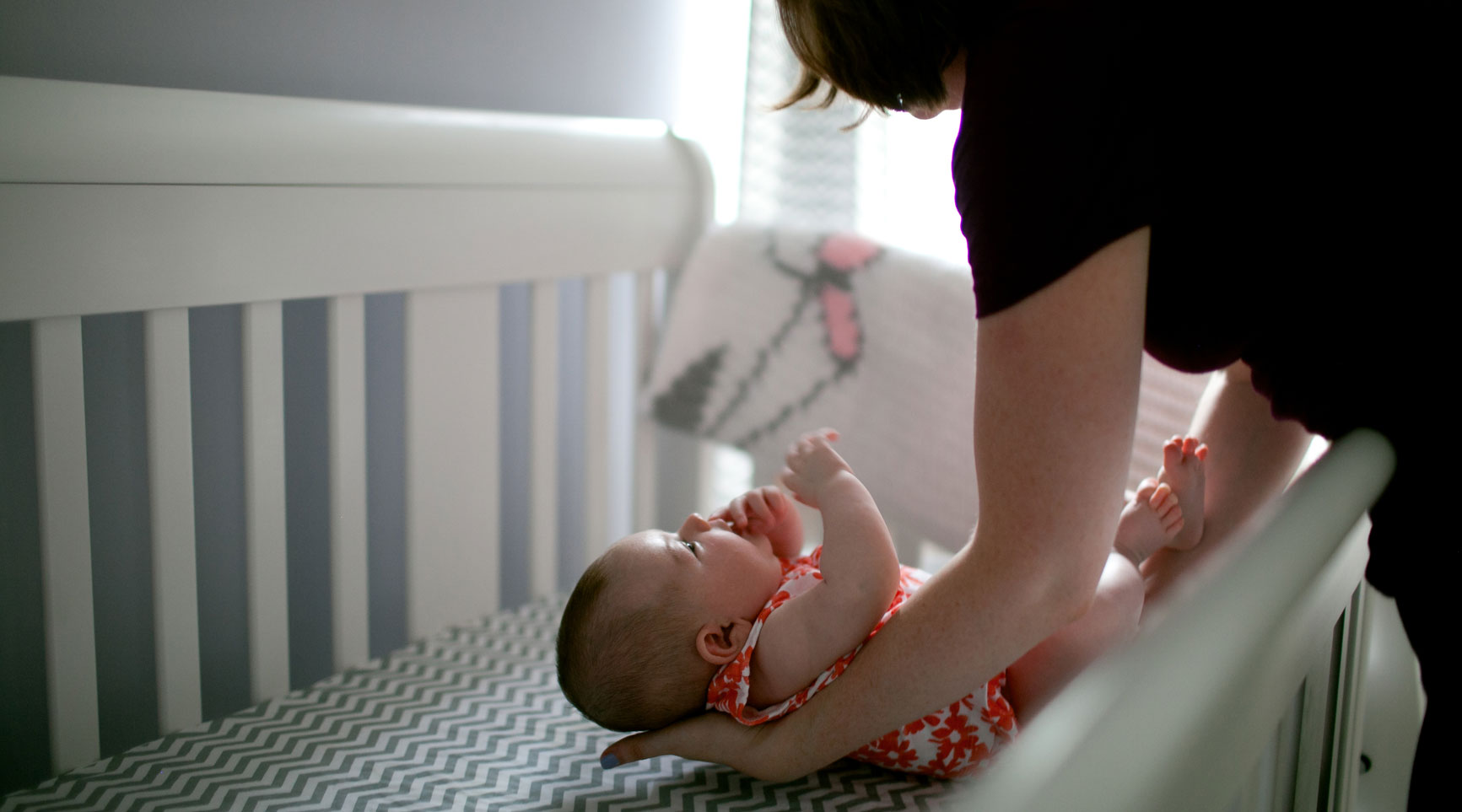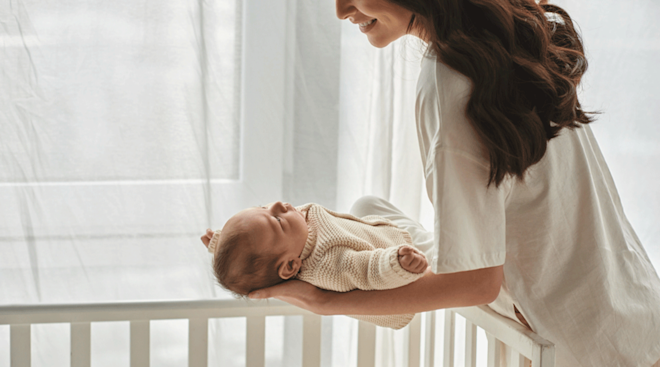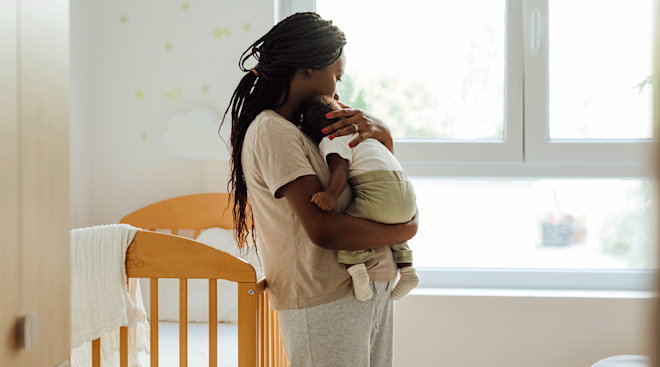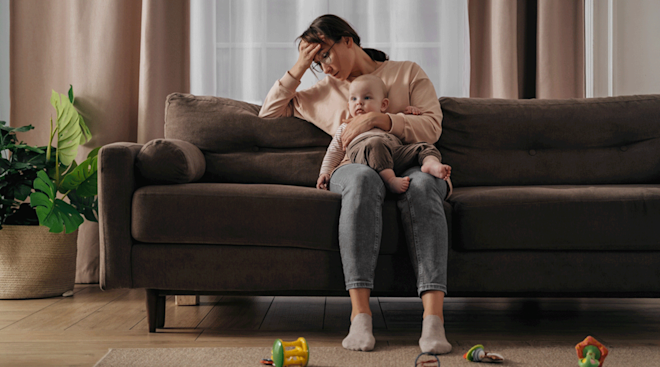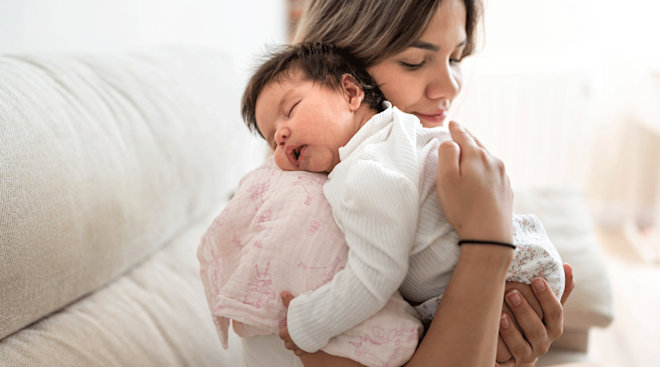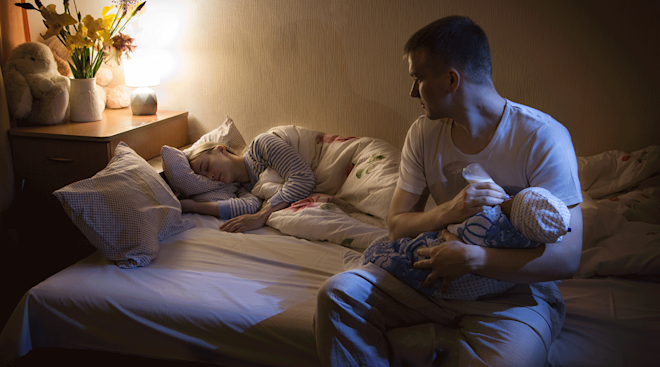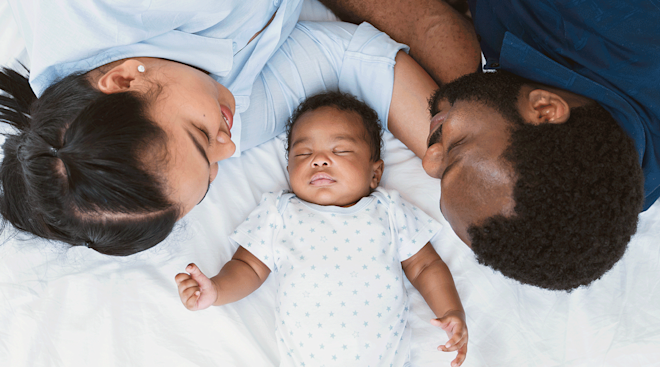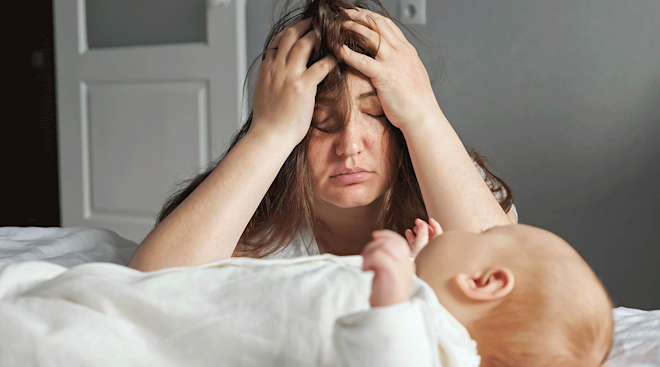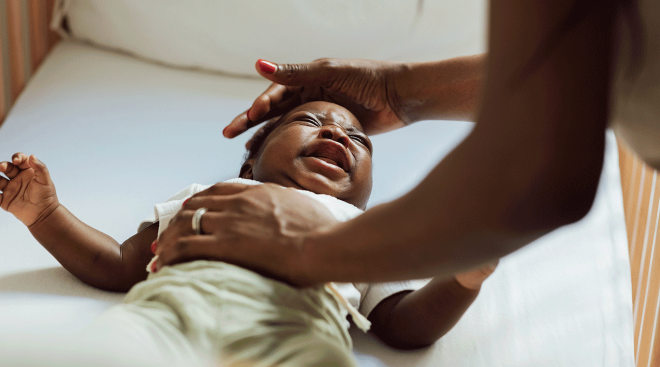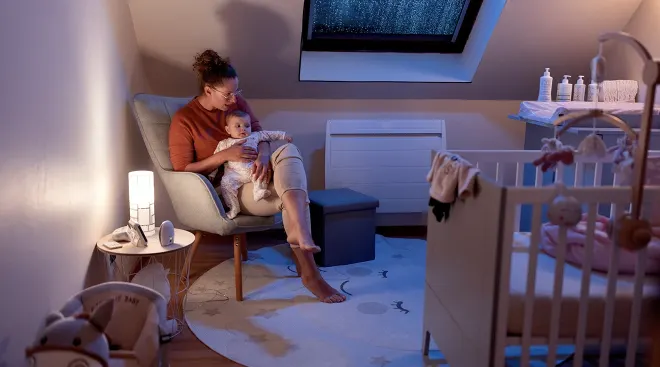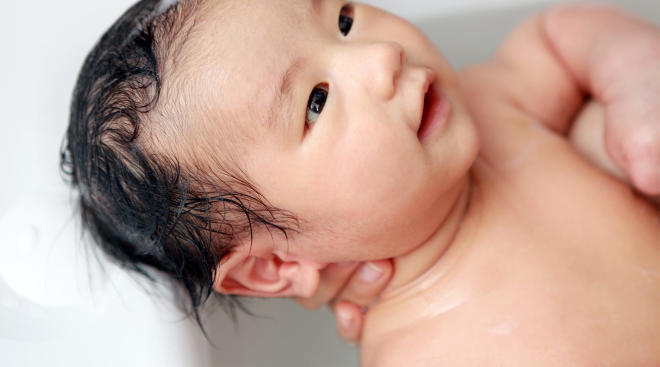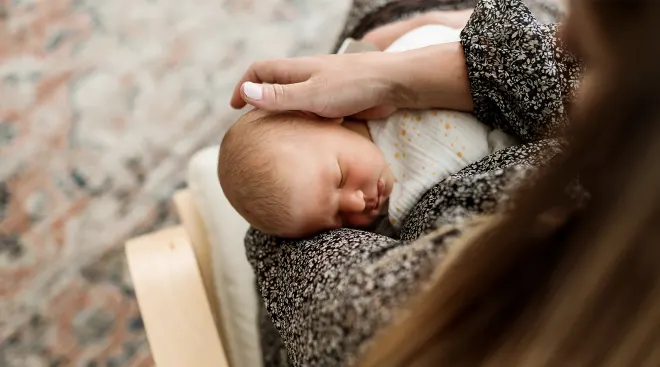5 Reasons Baby Is Waking Up at Night (and What to Do About Them)
One of the biggest challenges of being a new parent is the serious lack of sleep. According to one 2019 study, new parents don’t get uninterrupted sleep for up to six years after baby is born. Odds are, in the first few years of baby’s life, they likely don’t even remember what it’s like to sleep a full night without a hazy trip to the nursery. While figuring out how to quiet those dreaded nighttime wails may seem impossible in the moment, the key to ending them is to get to the bottom of why they’re happening in the first place. Here are five common reasons babies wake, and what to do about them.
Baby is pretty sensitive to their environment, so adjust your thermostat to a sleep-friendly temp—for baby, that’s 68 to 70 degrees Fahrenheit, says Rebecca Kempton, MD, a certified pediatric sleep specialist, founder of Baby Sleep Pro and a medical expert with Dr.Brown’s. Also, beware of overheating them with a ton of layers. Baby doesn’t need more than pajamas and a swaddle or sleep sack. (If it’s chilly, use warmer PJs and/or a thicker sleep sack; remember, it isn’t safe for baby to sleep with a blanket until they’re at least one year old.)
Too-tight pajamas, a strand of hair wrapped around a toe (it happens!), a leaky diaper—there are all sorts of things that can cause baby discomfort throughout the night. And some babies are more sensitive than others. Check baby for potential irritants, like hair or a rough snap on their sleeper, before bedtime.
If baby wakes because of a middle-of-the-night blowout, Kempton says to keep the diaper change “business-like.” Don’t turn on too many lights, talk too much or play with baby. Set the precedent that this isn’t time for play or fun—it’s time to get back to sleep.
Invest in blackout curtains, suggests Kempton, as reducing light exposure helps the brain release melatonin and keeps baby’s internal clock in rhythm. Babies are too young to be scared of the dark, so they really don’t need a nightlight. Of course, you might need one, so you don’t trip when you’re in baby’s room.
Newborns need to feed around the clock and then gradually start to eat the bulk of their meals during the daytime. Still, for some babies, waking for a nighttime feeding can be a tough habit to break. Paula Prezioso, MD, a pediatrician at the Pediatric Associates of NYC, says babies as young as 4 months old can go all night without feeding. During the day, follow an “eat-wake-sleep” routine (where you feed baby as soon as they wake up) that includes plenty of “eat,” so baby gets their nutrition during the daytime, she says. But remember: Feedings can also be a great way to bond. Baby might not be in it just for the breast milk or formula—they might be waking for some snuggles with you.
For the first few months of life, baby relies on you to comfort them and coax them back to sleep whenever they wake. Ultimately, the goal is to teach baby to self-soothe, so they can fall back asleep on their own. To do that, you might consider sleep training baby. There are a bunch of different methods to choose from, but the common aim is to get baby to sleep through the night without help from you. “A baby’s ability to sleep on their own without the help of a parent is a learned behavior,” says Kempton. “This is best learned through creating positive sleep habits.”
About the experts:
Rebecca Kempton, MD, is a certified pediatric sleep specialist based in Chicago. She is the founder of Baby Sleep Pro and a board member of the American Sleep Association and the Family Sleep Institute. Additionally, she serves as a medical expert with Dr.Brown’s. She obtained her medical degree from Cornell Medical School.
Paula Prezioso, MD, is a pediatrician based in New York City. She received her medical degree from SUNY Downstate College of Medicine, completed her residency at NYU’s Bellevue Medical Center and has been with the Pediatric Associates of NYC since 1991. In addition to her practice, she currently serves as a clinical associate professor in the department of pediatrics at NYU Grossman School of Medicine.
Please note: The Bump and the materials and information it contains are not intended to, and do not constitute, medical or other health advice or diagnosis and should not be used as such. You should always consult with a qualified physician or health professional about your specific circumstances.
Navigate forward to interact with the calendar and select a date. Press the question mark key to get the keyboard shortcuts for changing dates.
































